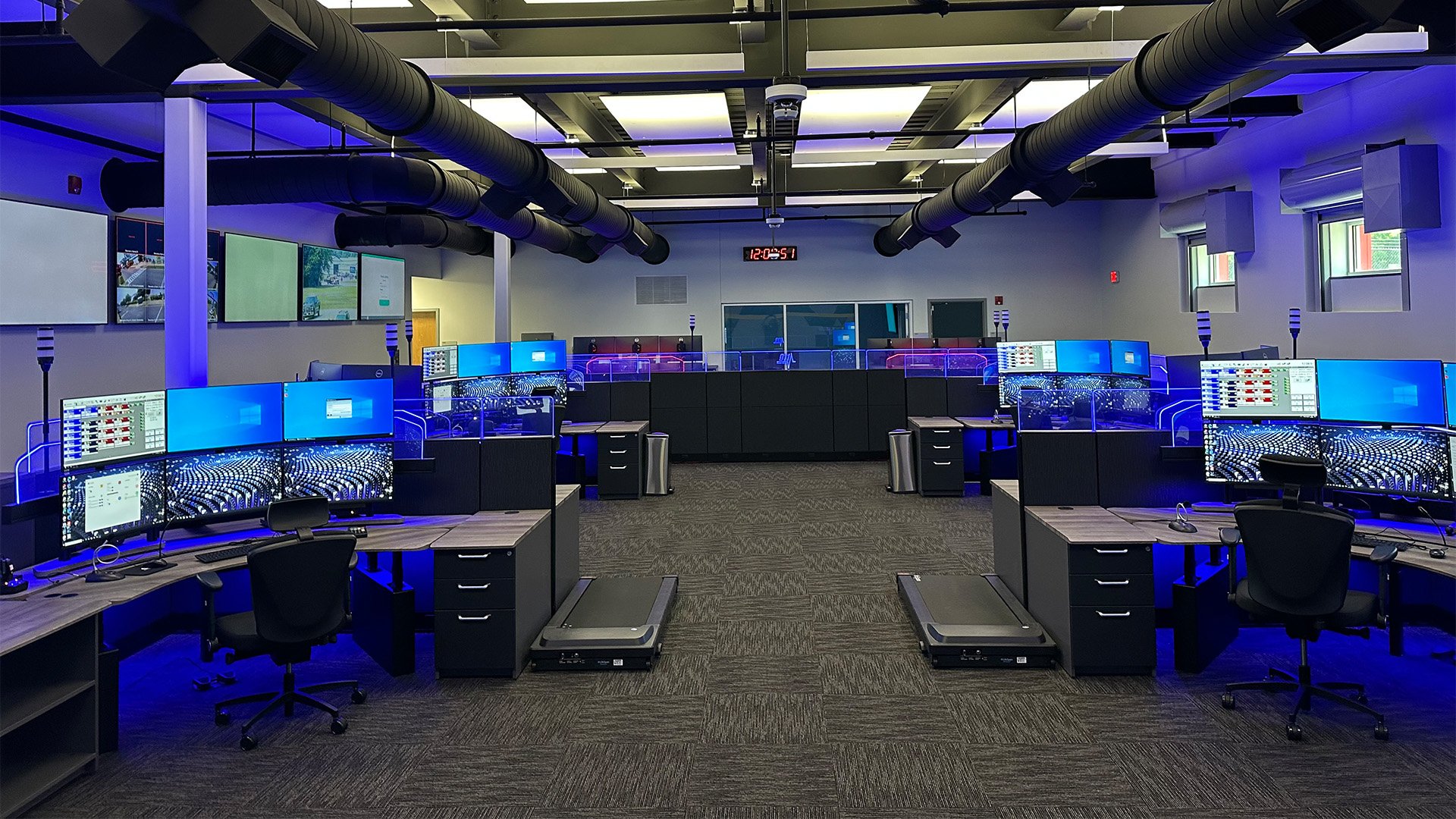 When is the right time to start thinking about getting dispatch furniture proposals? The short and simple answer to this question is, that it all depends. Every state (really every Comm center) has a unique purchasing system that usually drives the speed at which you can get new dispatch consoles. Workstations are typically replaced once every 10–15 years. If you are in charge of getting the new workstations, it might be the first and last time you buy furniture with your agency. If you’re not sure where to start, don’t worry; most people aren’t too experienced at buying dispatch furniture.
When is the right time to start thinking about getting dispatch furniture proposals? The short and simple answer to this question is, that it all depends. Every state (really every Comm center) has a unique purchasing system that usually drives the speed at which you can get new dispatch consoles. Workstations are typically replaced once every 10–15 years. If you are in charge of getting the new workstations, it might be the first and last time you buy furniture with your agency. If you’re not sure where to start, don’t worry; most people aren’t too experienced at buying dispatch furniture.
To help you out, here's a tip. If you can agree with ANY of these bullet points when thinking of the next 2-3 years, it’s a good idea to start looking:
- You have a radio, CAD, and/or phone upgrade
- You’re getting a new building
- You’re consolidating with another Center
- You’re hiring for more positions than you have seats
- Your current furniture is fixed (allows for sitting only), doesn’t work, or is over eight years old
- You’re building/renovating a backup center
*Disclaimer: Three years is typically too far in advance to start looking for proposals UNLESS you’re getting a new building or doing some major renovations. If you’re doing either of these things, it is a great time to bring the furniture vendor and the architect together to create a harmonious, ergonomic room that will last you for decades.*
Why should you plan so far in advance? Isn’t there a fixed price per station? Shouldn’t the vendor be able to drop a block into a blueprint and call it a day?
It’s not that easy. Dispatch furniture in the 21st century is custom made to meet the client’s needs. We need to get room dimensions, equipment information, and storage requirements in order to create a drawing proposal. This data is unique to every Comm Center.
The following steps should help you on your quest for new dispatch furniture:
Step #1: How Can I Buy?
The first step is to get more familiar with HOW your center purchases furniture. It’s best to know this before meeting with a sales representative. If you’re still not sure, the sales representative can usually refer you to a nearby center so that you can hear first-hand advice. Remember, you’ll get solid tips from those who have experience.
To further help you out, here are some questions you should ask yourself and the procurement team before you start looking:
- What is the budget for furniture?
- When is the budget due?
- Are there grants available to pay for workstations?
- Can you purchase off state contracts or another cooperative purchasing group?
- Do you have to conduct a formal RFP, or can you simply collect three quotes?
- Can you "sole-source" a vendor or "piggyback" off of a contract?
Step #2: Siri, Who Sells Dispatch Consoles?
If your purchasing team has given you the greenlight to start getting proposals, the best way to look for furniture is to ask for referrals! See who your neighboring agency uses, or attend your local state conferences to get an idea of who the vendors are in your area.
It will probably take a couple of weeks to schedule an onsite meeting with your furniture vendor. Why? The onsite meeting should not only be you and the vendor. It’s best practice to have your IT personnel, dispatch supervisor, and project manager present for the meeting. It can take some time to coordinate a good date for everyone.
During the initial meeting, they’ll want to get room dimensions as well as monitor and CPU information. They’ll also want to hear your estimated timeline for completion. Including the time it takes to make revisions and modifications, it can take anywhere from one month to one year to produce a drawing that pleases everyone.
This step can take even more time if you’re updating radios or CAD. Monitor sizes and quantities dictate the size of the desk you will need, which is why you see radio/CAD and furniture upgrades happening simultaneously. Your initial proposal might plan for 21” monitors, but later your CAD vendor decides you need a 32” monitor. A bigger monitor usually requires a bigger desk.
Step #3: It’s All About the Money
Once your drawing proposal is complete, you’ll need the quote and the blessing from procurement. Make sure everyone is on the same page with due dates, as every state follows a different fiscal year or budget pattern. Unfortunately, some furniture updates get denied at budget hearings, and you’ll have to wait until next year for the next round. On the plus side, you won’t be scrambling for quotes, as you should have all of your ducks in a row!
If you are approved, don’t celebrate just yet! There are some crucial steps needed in order to get the project to completion.
Step #4: Put on the Finishing Touches
After the heavy work of getting the design and quote approved is over, you’ll need to address the finishing touches and tie up the loose ends. The fun part is that there are catalogs of colors to choose from!
For this step, you’ll need to collect:
- Finishes
- Purchase order
- Drawing sign-offs
- Cable sign-offs
This can be slow and painful or quick and easy, which is why Step #1 was so important! As you’re getting these things together, you’ll also probably need a pre-construction meeting with all of the vendors involved. This step can range between two weeks and two months to complete because you’ll be coordinating multiple schedules. We actually have a great article to help with that: “What to Expect When You’re Expecting… Dispatch Furniture.”
Step #5: Understand Production and Installation Time
Want to know a fun fact? Production time takes 8–12 weeks to build and ship the furniture. In addition to that, installation time all depends on your scenario. Things that will affect installation time are:
- Live cutover vs. empty room
- Other vendors involved (radio, CAD, phone, floor, etc.)
- Daytime vs. nighttime/weekend installation
- Unexpected delays (there’s always something)
Wrapping Up
If you read all of the steps above, we’re sure you’ll agree that you should allow for a little extra time in the planning process when buying dispatch furniture. Two years doesn’t seem like such a long time now, does it?
Unlike radios or phones, your dispatch workstations will be custom built, and they will sit in your room for 10–15 years. You might not care about color finishes or comfort controls like fans and heaters when you start the process, but by the time you get to Step #5, you’ll be glad you took your time and didn’t rush into a decision. As we mentioned, if you’re three or more years out from getting new furniture, it might be too soon to start looking. On the other hand, getting a budgetary estimate never hurts, especially in the event you have some money leftover when it’s all said and done. Good luck!



